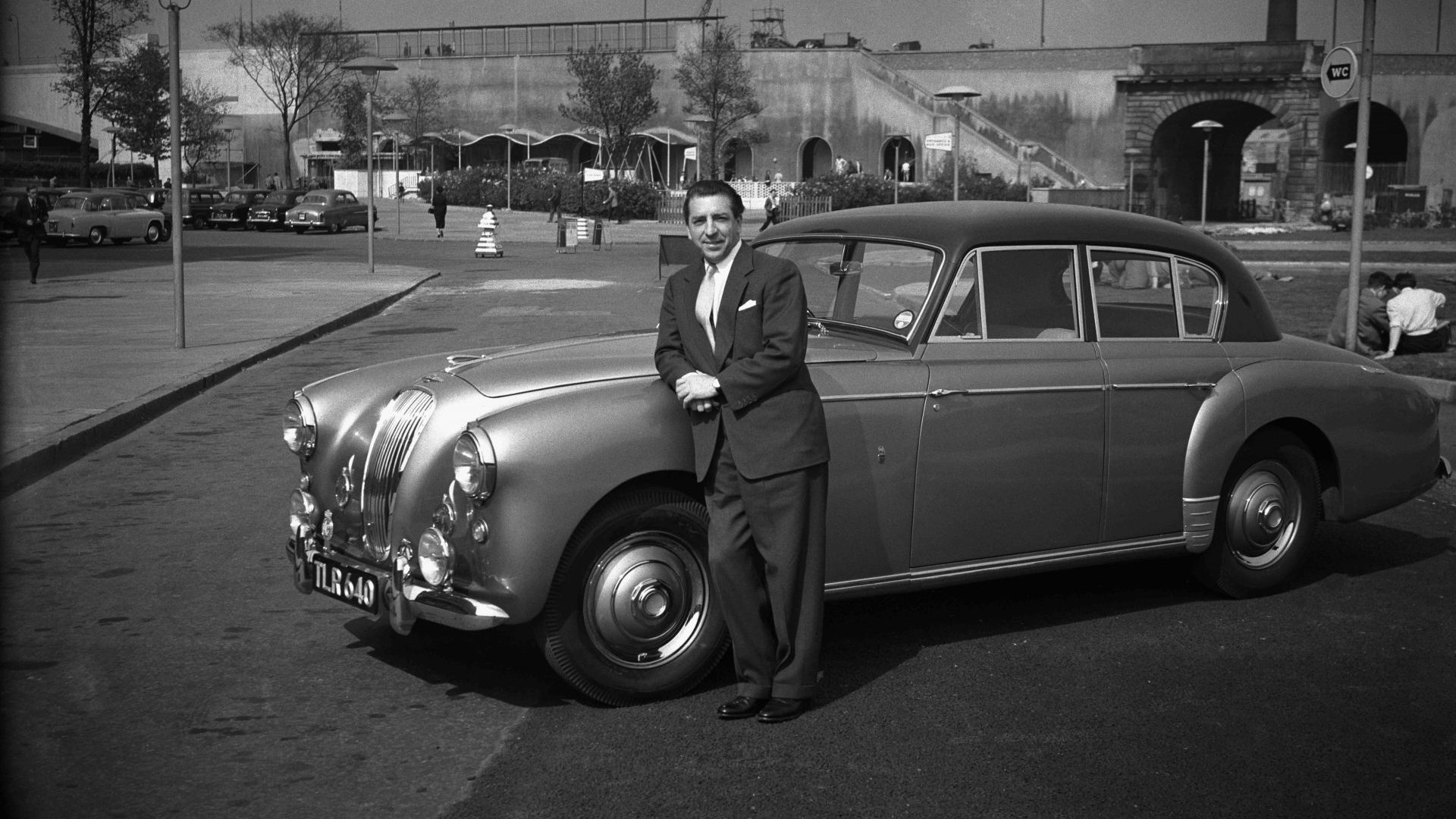In a scene from the 1987 film Good Morning Vietnam, Robin Williams’ ebullient DJ Adrian Cronauer is a passenger in a truck driven by Private Edward Garlick, played by Forest Whitaker, who has been running through some of the artists deemed acceptable to play on the forces radio station Williams’ character has just arrived in Saigon to join. One name in particular has Cronauer almost out of his seat.
“Mantovani?” he hoots. “They play Mantovani to insomniacs who don’t react to strong drugs!”
The music of Mantovani is so middle of the road that your local council could use it to measure precisely where the white line goes. His lush string arrangements of popular tunes have been dismissed as worthless by self-appointed musical gatekeepers since the first albums appeared in the early 1950s, looked down upon as “music for not listening”, condemned as cloying schmaltz.
The man himself, who clocked up over 100m album sales, could afford to be sanguine about critical coolness towards his work. Labelling it “schmaltz” was the only thing that came anywhere near getting under his skin.
“Schmaltz has something saccharine about it,” he said. “I like to think my music has good taste.”
Mantovani’s sound has been imitated so often that it’s easy to forget how innovative it was when it first emerged, a high-pitched wall of strings shimmering out of postwar austerity and cascading through the realm of
popular music in the years before Elvis walked into Sun Studio in Memphis and changed the world. Mantovani may not have changed the world, but he brought a new sound of optimism and hope to people all over it. His was music of calm exhilaration, a restrained joy that suited the mood perfectly at the halfway point of a tumultuous century.
“Strings were not being used as musically then as they are now,” he said in a 1963 interview. “I wanted to get a classic string sound with plenty of violas and cellos. I wanted to use close harmonies. I wanted an overlapping of sound, as though we were playing in a cathedral.”
Mantovani had worked with the leading composer of English light classical music, Ronald Binge, since the 1930s when Binge joined Mantovani’s Tipica Orchestra as a piano accordionist. Between them they came up with the honey-thick string sound that became Mantovani’s trademark.
Of his 48-piece orchestra, 37 members were string players. Mantovani would achieve his remarkable sound by dividing them into sections and instructing each to stagger their entrances slightly to make the music shimmer, lending a smear to the melody through a manufactured reverb that made even the deadest room sound like a soaring gothic nave.
His signature tune, the one that catapulted him to stardom on both sides of the Atlantic, was the waltz Charmaine, the first recording to fully employ this new string sound. Released as a single in the US in 1951, Charmaine sold more than a million copies and catapulted Mantovani from a popular UK band leader to international star.
While he made the bulk of his considerable fortune from album sales, it was as a live performer that he excelled. On a stage in front of an audience, conducting and playing the violin – usually during the same piece – was where he was happiest. His enthusiasm was palpable, his charisma powerful.
“There is a significant difference between a Mantovani concert and a Mantovani recording,” said the New York Times in 1966 after a sold-out show at Carnegie Hall, “and the secret ingredient is the compelling warmth of the maestro’s personality.”
By the time Mantovani became a global superstar in the 1950s he already had more than two decades of highlevel performance experience behind him. He had grown up with music: his father, Benedetto, was a violinist who
had been Arturo Toscanini’s concertmaster at La Scala in Milan and was a professor of music in Venice when Annunzio Paolo Mantovani was born in 1905. When the young Mantovani was seven, his father moved the family to London to take up a post at the Royal Opera House in Covent Garden. They would never leave.
Annunzio showed immense musical promise from an early age, first at the piano, then on the violin, but Benedetto was reluctant at first to encourage
the boy towards a career in music.
“He was right,” said Mantovani in 1960, “music is too precarious. I have a son
and I don’t want him to be a musician.”
Despite Benedetto’s efforts to steer him towards an engineering qualification, Mantovani’s mother persuaded him to allow the boy to study at London’s prestigious Trinity School of Music. He was a natural performer and a brilliant violinist, giving solo recitals at prestigious venues before he was even out of his teens.
Benedetto finally accepted that his son’s future lay with a fiddle in his hand rather than a spanner when, in 1930, Mantovani performed the Saint-Saëns
Violin Concerto in B Minor in London to great acclaim, impressing even Sir Thomas Beecham, who sent a congratulatory note to his dressing room. Benedetto handed him a priceless 18th-century violin that had been a gift to him from a Russian princess.
By then Mantovani was already a well-known name in Britain thanks to his regular appearances on BBC radio. He had formed a small orchestra at London’s Hotel Metropole, a short distance along the Strand from the broadcaster’s first studios at Savoy Hill, and from 1927 Mantovani’s violin became a staple sound of the early days of British broadcasting.
In 1932 he had put together the Tipica Orchestra, which began touring nationally and by the outbreak of the second world war had sold more than
a million records. Newspapers were reporting breathlessly that Mantovani’s
hands were insured for £10,000, the equivalent of half a million today, prompting one interviewer to marvel that “when you shake his hand you have £5,000 in your clasp”.
Yet Mantovani always felt there was something restricting about the classical
concert halls and hotel ballrooms that populated his diary, sensing there was
a much bigger audience out there with an untapped taste for beautiful music. All he needed to do was find the right formula, the perfect balance of music, performance and sound to find them. When he alighted upon the tumbling string sound that breathed new life into great tunes it allowed him to bring a new sense of glamour and colour into millions of lives.
“Perhaps 25% of people like the classics and 25% like the Beatles,” he said in 1969. “I aim to please the 50% in the middle.”
Yet despite his huge success, Mantovani remained at heart a modest man. Michelangelo, Pelé, Molière, Elvis, Rembrandt, Kylie: the list of cultural giants who become known by just one name is an exclusive one. He is there
purely on merit, even if in the case of Annunzio Paolo Mantovani the mononym had a more practical application.
“With my name, one’s quite enough for people,” he said. “Using the others
would make it a real mouthful.”




